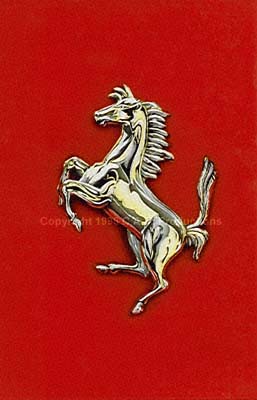Great Moments From Cinema - 26
The Music And The Mouse
Movie: Fantasia (Walt Disney Pictures; 1940)
Director: 11 directors for 6 sequences.
Screenplay: 24 writers for 6 sequences.
Major Cast: Leopold Stokowski (Conductor, The Philadelphia Orchestra) and Deems Taylor (Narrator)
Film Synopsis: Walt Disney unleashes his and our imagination by selecting great works of classical music and setting them against his animated pictures.
My Favorite Moment: Beethoven’s "The Pastoral Symphony".
Why I Like It: For all those skeptics who believe that only books, not movies can stimulate us; only books not movies can arouse feelings of euphoria; only books not movies are our cultural heritage; Fantasia is a resounding slap in the face. It is Walt Disney’s greatest gift to us. An astonishing marriage of classical music masterpieces and animation, it is a subliminal experience which is unparalleled in the effect it has on human spirit. American Film Institute (AFI) named it as one of the Top 100 movies of all time and for good reason. Two hours spent on this film can be a life-changing experience.
The narrator at the beginning explains the idea behind this movie. When we start listening to classical music, after a certain period, our mind starts associating certain images with the symphony. Disney wanted to explore if a similar relationship can be established with animation. By doing so, not only does the animation come alive, but the maestros and their work get appreciated by a whole new audience. It is a seamless integration and although most of the music pieces were written years earlier, they seem to have been composed for that particular story. It is the genius of the team at ‘Disney studio’s’ that they have been able to do justice to the music and in doing so created their own masterpieces. The film starts with Bach's “Toccata And Fugue In D Minor” where at first they only play with abstract colors and pictures of sky and clouds. It gets the viewer comfortable with the concept and also opens his mind to the animated world. Next is Tchaikovsky's “The Nutcracker Suite” where fairies join in a dance with the flowers and other plants in the forest. Especially pleasant in a sequence where the petals of a flower resemble an evening gown worn by ladies in a ballroom. Younger viewers will be pleased to see ‘Mickey’ as “The Sorcerer's Apprentice” set to Dukas and Stravinsky's “The Rite Of Spring” which demonstrates the early years of earth from single-celled organisms to mighty dinosaurs. Then is the best sequence of “The Pastoral Symphony” by Beethoven which has the mythological story of centaurs and unicorns and Greek Gods of Thunder and Lightning. In an inspired scene after the rain, Goddess ‘Iris’ comes flowing in and her hair becomes the multicolored rainbow. Then as night engulfs the land in a cloak of darkness, Goddess ‘Diana’, releases stars from her bow of crescent-moon. Seeing it with Beethoven is nothing short of brilliant. There are two other sequences of Ponchielli's “Dance Of The Hours” followed by Moussorgsky's “Night On Bold Mountain” and Schubert's “Ave Maria”. Stokowski conducts ‘The Philadelphia Orchestra’ magnificently. The end of the film will leave the audience content and appreciative of the art forms that are music and cinema and which makes our lives richer.

